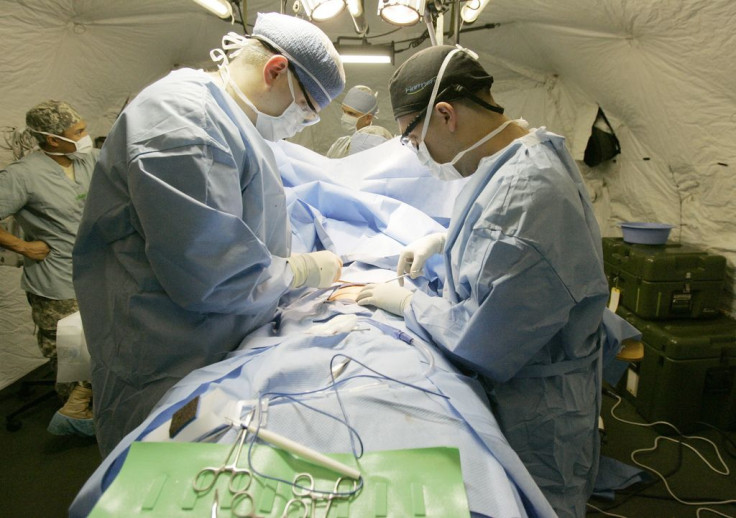More Than Meets The Eye: Death Rates Not Effective Measurement Of Surgical Performance

Surgeries are often used to prevent chronic diseases from getting worse or unbearable. The doctors who perform them are usually trained very well in their specialty and can be trusted to do a good job. However, everyone makes mistakes, and surgeries can go awry.
However, a new study reveals that reporting death rates after surgery is unlikely to reveal whether a surgeon's performance was poor. The study considered three year's worth of national mortality data in Europe for adult cardiac surgery as well as bowel cancer resection, gastrectomy, and hip fracture surgery. The research team calculated how many procedures would be necessary for reliable detection of poor performance on the part of the surgeon and how many surgeons in English National Health Service hospitals actually do that number of operations. Researchers found that about three-quarters of surgeons do sufficient numbers of hip fracture and cardiac operations every year to identify cases of poor performance. As for bowel cancer resection and gastrectomy procedures that could be used to identify whether a procedure was done properly, only just 17 percent and nine percent, respectively, were viable.
While reporting of death rates reveals how many surgeries were unsuccessful, it does not reveal why they were unsuccessful. Therefore, more surgeries and their related death rates must be analyzed in order to measure which deaths were a surgeon's fault. Similarly, death is the worst case scenario, as many other things can go wrong as a result of surgery, and many may not be related to a surgeon's work. For example, a patient may become paralyzed, worsening his or her disease or develping another chronic issue as a result of the surgery. None of these results are death, and so would not be counted toward a statistical review of a surgeon's efficacy.
Also of note, not all surgeons perform one type of surgery all the time. Even if a surgeon specialized in a particular type of surgery, he or she can choose which types of surgeries he or she will perform later on. Therefore, comparison of types of surgeries and their death rates may not be enough to judge whether a poor surgery result is the fault of the surgeon at all.
Researchers also found that the numbers of operations needed for the statistical power necessary to detect truly poor performance, instead of just chance issues that can occur after surgery, exceed the annual number of procedures typically done by surgeons.
"The danger is that low numbers will mean that chance factors overwhelm the influence of surgeon performance on the number of deaths. This could mask poor performance and lead to false complacency," said Jenny Neuburger, Ph.D., one of the study's researchers.
However, surgeons may not be to blame in all cases of surgeries turning out badly. The research was done in the effort to reveal which surgeons were "the best" and which were highly recommended for their work. However, the researchers even admit that there are more factors to consider other than death. "The reporting of results for individual surgeons should be based on outcomes that are fairly frequent, and fortunately, from the point of view of patients, mortality is not one of them. For specialties in which most surgeons do not perform sufficient numbers of operations to reliably assess their outcomes, reporting should be at the level of the surgical team or hospital, and not the surgeon," Neuburger added.
Source: Walker K, Neuberger J, Groene O, Cromwell DA, van der Meulen J. Public reporting of surgeon outcomes: low numbers of procedures lead to false complacency. The Lancet. 2013.
Published by Medicaldaily.com



























